Many children start eating foods that contain a lot of sugar at a very early age. This causes a child’s taste buds to become less sensitive, so regular food no longer tastes appetizing. There are also foods that children should not eat due to the physiological characteristics of their bodies.
HereWere decided to figure out how to teach a kid to eat healthy food and what seemingly healthy foods they shouldn’t eat.
1. Juice
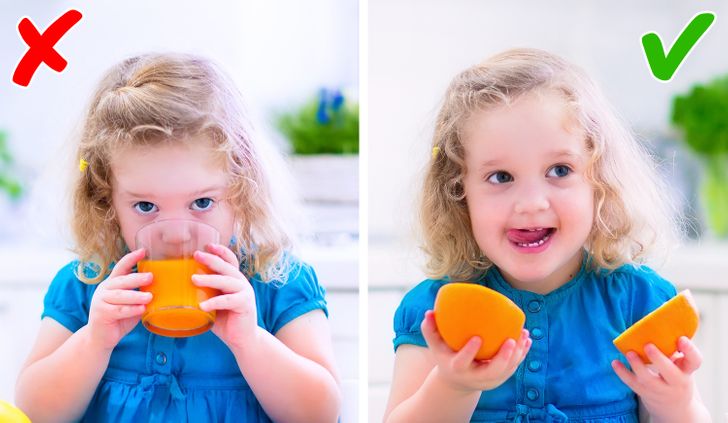
Juices are popular with children of different ages. They are convenient and come in bright packaging. But this is where the advantages of packaged juice end. A glass of juice contains more than 6 teaspoons of sugar. Dissolved sugar is immediately absorbed into the bloodstream, which is bad for carbohydrate metabolism.
The American Academy of Pediatrics recommends eating fruit instead of drinking juice. Thanks to the fiber in the fruit, the juice is gradually absorbed. You could also try getting him to drink some freshly squeezed juice or a smoothie.
2. Yogurt
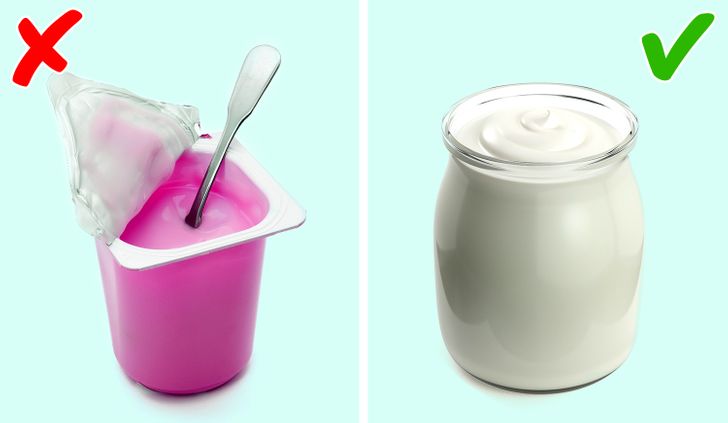
To choose a healthy yogurt, you must read the ingredients. On the one hand, do not buy the most dangerous yogurts that are not stored in the refrigerator, but on open shelves. Second, buy plain yogurt instead of candy.
Yogurt with fruit contains a lot of sugar, fat, and calories, which makes children overweight, which increases the risk of developing diabetes.
3. Cereals
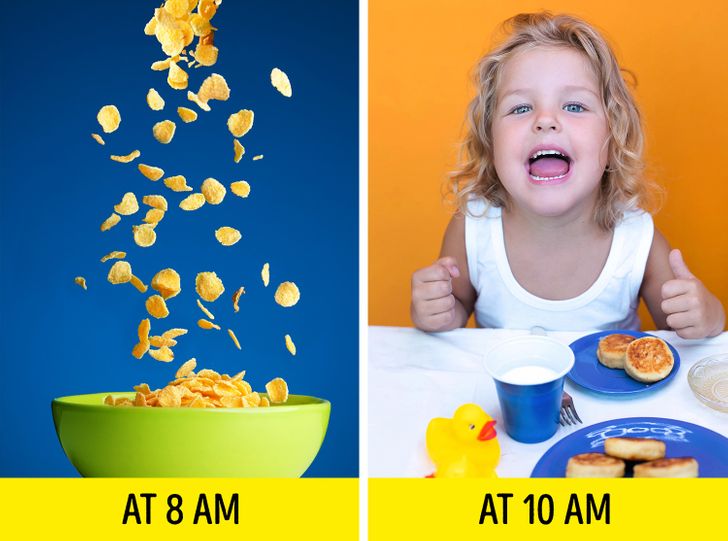
Flakes, muesli, and other similar foods look very healthy in commercials that claim to contain lots of vitamins and minerals. In fact, these foods do not contain any healthy elements. But what they contain is a lot of sugar. All the healthy elements in corn, wheat, and oats are removed during production, leaving only the carbohydrates.
It is very difficult to satisfy hunger with this type of food, so after a few hours, the child will again feel hungry. A good substitute is an oatmeal. You can add fruits and nuts to make it more attractive for kids.
4. Honey
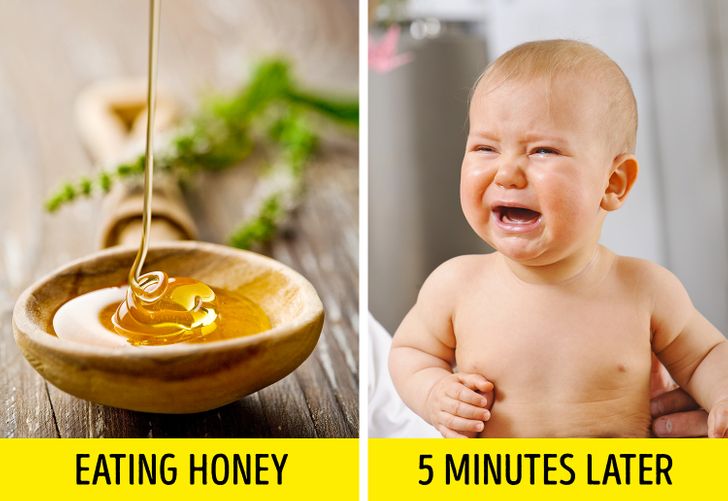
Children under 2 years old should not eat honey. Not only is it a possible allergic reaction, but honey sometimes contains bacteria that can lead to a serious infectious disease called botulism.
5. Grapes
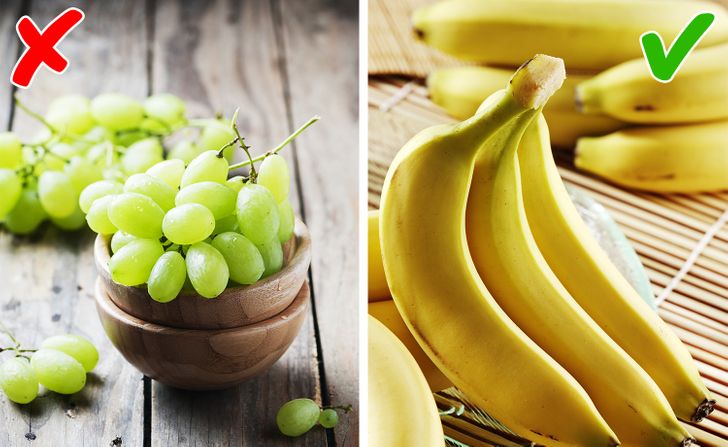
Grapes contain vitamins and minerals that children need. But there’s a reason kids shouldn’t eat them: they’re big and slippery and a child could choke on them.
Also, grapes are very difficult for a child’s digestive tract to process. Bananas are an excellent substitute for children under 2 years old.
Preview photo credit Depositphotos.com, Depositphotos.com





